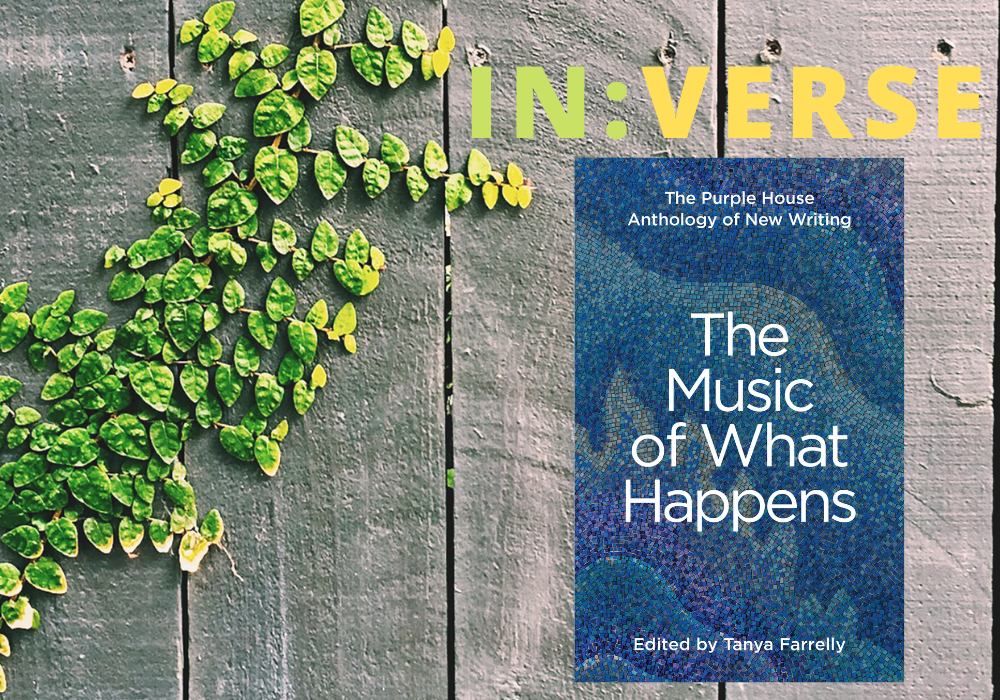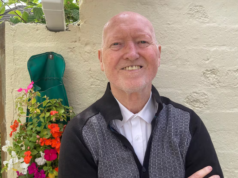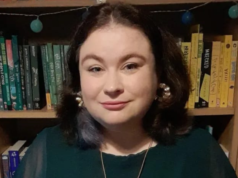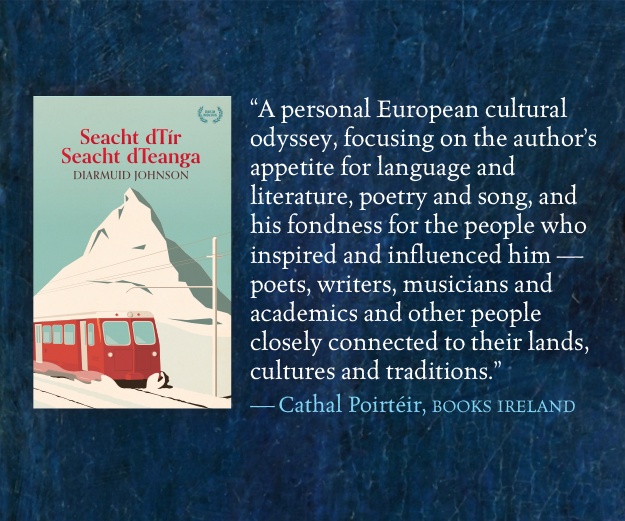
The Music of What Happens – the Purple House Anthology of New Writing.
Edited by Tanya Farrelly | New Island Books | 196pp | pb €13.95 | 9781848407763
Writers and artists of almost every stripe have engaged creatively with illness. At one stage it was considered that consumption and its fevers lent an almost magical hue to creative work—a boost to the imaginative processes. Maupassant’s story Le Horla has been considered to be a by-product of the unfortunate writer’s syphilis-induced delirium; Solzhenitsyn’s semi-autobiographical novel Cancer Ward speaks for itself. Alphonse Daudet’s frightening journal In the Land of Pain (translated by Julian Barnes: La Dolou in Daudet’s Provençal, La Douleur in French) charts ache by ache his dying of syphilis, though photos taken of him at the time are equally terrifying. There are other works, of course—plenty of them.
In our time, cancer is everywhere. And we talk about it; at least, women do. Men still tend not to—like TB (consumption) in another age, men perhaps feel that mentioning it is enough to catch it, as if it were something supernatural and hovering in the air waiting to be conjured in. When I told a friend some years ago that I was being treated for cancer, I hardly had the sentence completed when he held out a hand to ward me off (as well as, presumably, the cancer demons), walked away sharpish and announced ‘I don’t want to know!’ Perhaps I should have pursued him and mischievously touched him on the shoulder. Would he have screamed? My parents died of it and an uncle; perhaps I ought to have expected a visit. My diagnosis and treatment were excellent by any standards. Forty-plus years ago, I may not have been so fortunate. My father was diagnosed initially as having a slipped disk, and my mother, even farther back—her consultant being on vacation—was assured that the sudden sprouting of a row of hard nodules was merely an effect of her ongoing chemotherapy.
This very worthy anthology celebrates 30 years of the Purple House, a cancer support centre set up in Bray, Co. Wicklow, by Veronica O’Leary following her joust with the disease in her twenties. The editor, Tanya Farrelly, is also Director of the Bray Literary Festival and she, through relatives and friends, has had brushes with cancer. The result is a fine anthology by any measure, especially a literary one. Some of the poems or prose pieces deal head-on with experiencing the disease: Ferdia MacAnna’s 1988 book The Last of the Bald Heads treated of his cancer story and was revolutionary in its time—here was a male shouting ‘Me, too!’ Here, MacAnna offers a drama extract, ‘Rock Musical for The Diceman’—an homage to the late Thom McGinty whose stage was Dublin’s Grafton Street; Eleonor Hooker’s poem ‘Call Back’ will strike big bells with anyone who’s been given a check-up appointment:
The doctor tells me, from my previous scan
There’s evidence of change – nothing sinister …
while Mary O’Donnell’s ‘Trimming the Ivy’ waxes a tad more poetical and utilises the metaphor of ivy on a house and its need to be trimmed:
… the long tendrils of a plant
in death, brown-veined …
Jessica Traynor’s poem ‘Rock Pool’ seems to avoid the central theme altogether, save for allusions to ‘hermit crabs’ and ‘pincers’, but this does not detract from the poem’s being about, mainly, a day at the beach.
It’s clear that some work here doesn’t engage directly with cancer or its environs as much as it might; then again, a reader ought to expect experiential variety and contrast in an anthology. Something similar happens in Brian Kirk’s otherwise strong and evocative poem ‘Fifty Years Later’, where for all of its rousing canticum resurrectionis flavour and its epigraph from Beckett, the reader is left wondering how it relates to the overall topic. It’s hard to envy the editor, making final choices. The novelist the late Emma Hannigan, an eleven-time cancer survivor and Breast Cancer Ireland ambassador, contributed a bright story, ‘Mummy’s Christmas Star’, which features a young lad christened Bentley Derik (sic) Miller, who proves to be a bit of an emmerdeur, bless him. And all comes right on the night.
There is, when all the work here is taken as a whole, an eloquence that speaks volubly of the reach that cancer has; it touches well beyond the experience of having it as one’s dubious companion, even in an age when a diagnosis is no longer an automatic death sentence. It’s the dark lurker at the back of one’s adult mind, and it comes gradually farther out from the trees as one gets older. It shows itself in friends, family, conversation about ‘celebs’ being treated for it, the voyeuristic nature of our attraction to it in all types of media. It peppers talk shows and even politics. It brings down our most familiar public figures: think of the late Gay Byrne and the late Brian Lenihan, people who directly entered our lives in one way or other. It strikes our teenage rock ‘immortals’: think of David Bowie, Lemmy from the band Motörhead; even our own terrific survivor, Brian Kennedy. This anthology pays tribute to the resilience of the many who have survived the illness, and those who have not.
It is not possible, alas, to ward off cancer by wearing a face mask or keeping well apart from each other. And perhaps because it is as regular a feature of our daily experience as breathing, it’s particularly up to our artists and writers to take it head-on. Above all, this is a brave anthology making a stand. And you don’t have to be in a trench to realise there’s a war on; the scandal around cervical smear tests is not likely to be easily forgotten.
Congratulations are certainly due to Tanya Farrelly and Veronica O’Leary. Congratulations are due, let’s face it, to everyone who made this anthology real.
***
By Fred Johnston
@Kenssington











